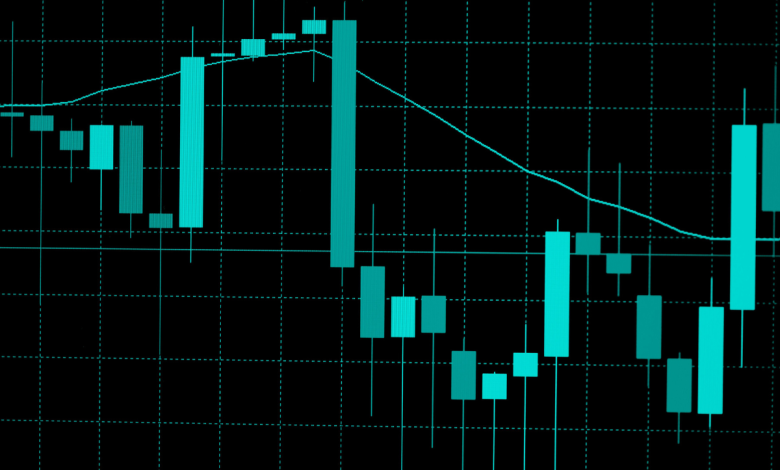How Does Arbitrage Work? – Learn Meaning, Types & Differences
Learn About Arbitrage

What is Arbitrage?
Arbitrage refers to the practice of exploiting price differences in financial markets to make a profit. Traders engaging in arbitrage buy an asset in one market where the price is lower and simultaneously sell it in another market where the price is higher. By capitalizing on these price discrepancies, arbitrageurs can generate profits with minimal risk.
The concept of arbitrage is based on the idea that prices for the same asset should be consistent across all markets. When inefficiencies or delays in information dissemination cause temporary disparities in prices, arbitrage opportunities arise. Efficient arbitrage requires quick decision-making and execution to take advantage of these fleeting price differentials before the market corrects itself.
Types of Arbitrage
Discover the power of the nifty trading app for seamless and efficient trading on the go. Stay up-to-date with real-time market trends and make informed decisions with just a few taps.
Arbitrage can be categorized into various types, each targeting different market inefficiencies. One common form is spatial arbitrage, which involves exploiting price differences of the same asset in different geographical locations. For example, a trader could purchase a commodity in one market where it is priced lower and sell it at a higher price in another market to profit from the price differential.
Another type of arbitrage is statistical arbitrage, which relies on complex quantitative models to identify mispriced assets based on historical price patterns and statistical correlations. Traders using this strategy aim to exploit short-term pricing anomalies by simultaneously buying and selling related securities to capture profits. These are just a few examples of the diverse strategies that fall under the umbrella of arbitrage trading, each offering unique opportunities for astute investors.
Understanding Price Discrepancies
Price discrepancies in financial markets occur when the same asset is trading at different prices across different platforms or exchanges. These variations can arise due to a variety of factors, such as differences in supply and demand dynamics, trading volumes, market sentiments, or even technical issues. Traders who are able to identify these discrepancies can potentially exploit them through arbitrage strategies to make a profit.
Understanding the reasons behind price discrepancies is essential for successful arbitrage trading. By closely monitoring market conditions and analyzing the factors influencing price disparities, traders can gain valuable insights into when and where arbitrage opportunities may arise. Being able to accurately assess the magnitude and duration of price differences is crucial in determining the potential profitability of an arbitrage trade.
Identifying Arbitrage Opportunities
Arbitrage opportunities arise when the same asset is trading at different prices in different markets or due to inefficiencies in pricing mechanisms. Identifying these opportunities requires a keen eye for detail and a thorough understanding of the underlying assets being traded. Traders often utilize various tools and techniques, such as statistical arbitrage models or market scanning software, to pinpoint potential opportunities quickly and efficiently.
Moreover, keeping track of market news, economic indicators, and geopolitical events can also help in identifying temporary price discrepancies that could be exploited for arbitrage. Being proactive and constantly monitoring multiple markets to spot any deviations from the norm is key to successful arbitrage trading. By staying vigilant and continuously researching potential opportunities, traders can stay ahead of the curve and capitalize on profitable arbitrage trades.
Executing Arbitrage Trades
Once an arbitrage opportunity has been identified, the next step is to execute the trades in a timely and efficient manner. This involves simultaneously buying and selling the same asset across different markets to take advantage of price differences. Speed is crucial in arbitrage trading as prices can change rapidly, and any delay can result in missed opportunities or decreased profits.
Executing arbitrage trades requires a high level of precision and attention to detail. Traders must carefully calculate the size of each trade to ensure that the risk is properly managed and profits are maximized. Additionally, factors such as transaction costs and market liquidity must be taken into consideration to determine the feasibility of the arbitrage opportunity. By executing trades swiftly and strategically, traders can capitalize on price inefficiencies and generate profits in the arbitrage market.
Leveraging Technology for Arbitrage
MTF is a cutting-edge trading platform that offers users a seamless experience in the world of finance. Take your trading to the next level with MTF. Download the app here.
In the realm of arbitrage trading, technology plays a pivotal role in enhancing efficiency and accuracy. With the advancement of algorithmic trading systems and high-frequency trading platforms, arbitrageurs can capitalize on price differentials across markets in real-time. These sophisticated technologies allow for swift execution of trades and enable arbitrageurs to seize profitable opportunities swiftly.
Moreover, leveraging technology for arbitrage empowers traders to conduct in-depth market analysis and identify potential discrepancies with greater precision. By utilizing automated tools and analytical software, arbitrageurs can streamline their decision-making process and react swiftly to changing market conditions. This technological edge not only enhances the overall effectiveness of arbitrage strategies but also enables traders to stay ahead of the competition in the fast-paced world of financial markets.
Factors Affecting Arbitrage Profitability
Discover the world of Online Share Trading with HDFC Sky. Trade stocks, commodities, and derivatives easily and securely from the comfort of your own home.
Arbitrage profitability is influenced by a myriad of factors that can either enhance or diminish the potential gains from such trading strategies. One crucial factor is the speed at which information is disseminated in the market. In today’s digital age, where news travels at lightning speed, the window of opportunity for arbitrageurs to capitalize on price differences is shrinking. Those who can quickly spot and act on these inefficiencies are more likely to reap higher profits.
Market liquidity is another pivotal factor that affects arbitrage profitability. A highly liquid market allows for easier entry and exit of positions, enabling arbitrageurs to execute trades swiftly and efficiently. In contrast, illiquid markets can pose challenges as it may be harder to find counterparties willing to transact at the desired prices, leading to potential profit erosion. Understanding the dynamics of market liquidity is essential for arbitrageurs to gauge the feasibility and profitability of their trading strategies.
Risk Management in Arbitrage
Risk management in arbitrage is crucial for traders to mitigate potential losses and protect their investments. One common risk in arbitrage is execution risk, which refers to the possibility that a trade may not be completed at the expected price due to market fluctuations or delays in the transaction process. To manage this risk, traders can use limit orders to specify the desired price at which they are willing to buy or sell an asset.
Also Visit Our Website: Iron Proxy
Another key risk in arbitrage is market risk, which stems from adverse movements in asset prices. Traders can diversify their portfolios to reduce exposure to a single asset or market, thereby spreading the risk across different investments. Additionally, using sophisticated financial models and algorithms can help traders identify and hedge against potential market risks in arbitrage trading.
Legal and Ethical Considerations in Arbitrage
In the realm of arbitrage trading, it is imperative to navigate the legal landscape with caution. While arbitrage itself is not illegal, certain practices may fall within the realm of market manipulation and insider trading, resulting in severe legal consequences. Traders must adhere strictly to all relevant laws and regulations governing financial markets to ensure compliance and uphold ethical standards.
Furthermore, ethical considerations play a crucial role in the world of arbitrage. Traders must operate with integrity, transparency, and fairness to maintain trust within the market ecosystem. Engaging in unethical practices, such as spreading false information or exploiting loopholes for personal gain, not only damages one’s reputation but also undermines the credibility and efficiency of the financial markets as a whole. By upholding ethical principles, traders can contribute to a more reliable and sustainable market environment.
Benefits and Drawbacks of Arbitrage Trading
Arbitrage trading offers the potential for substantial profits within short periods, making it an appealing option for investors looking to capitalize on price discrepancies across different markets. By exploiting these inefficiencies, traders can secure risk-free gains while simultaneously contributing to market efficiency by narrowing price differentials. Additionally, arbitrage provides diversification benefits for investment portfolios, as it can offer returns that are not correlated with traditional asset classes.
However, despite its advantages, arbitrage trading comes with its own set of drawbacks. One major challenge is the speed at which prices can adjust in response to arbitrage activities, diminishing the profitability of these opportunities. Moreover, executing arbitrage trades can be complex and time-consuming, requiring sophisticated strategies and technology to efficiently identify and capitalize on pricing disparities. Additionally, regulatory constraints and ethical considerations can pose risks to those engaging in arbitrage, necessitating a thorough understanding of the legal landscape and market dynamics.




